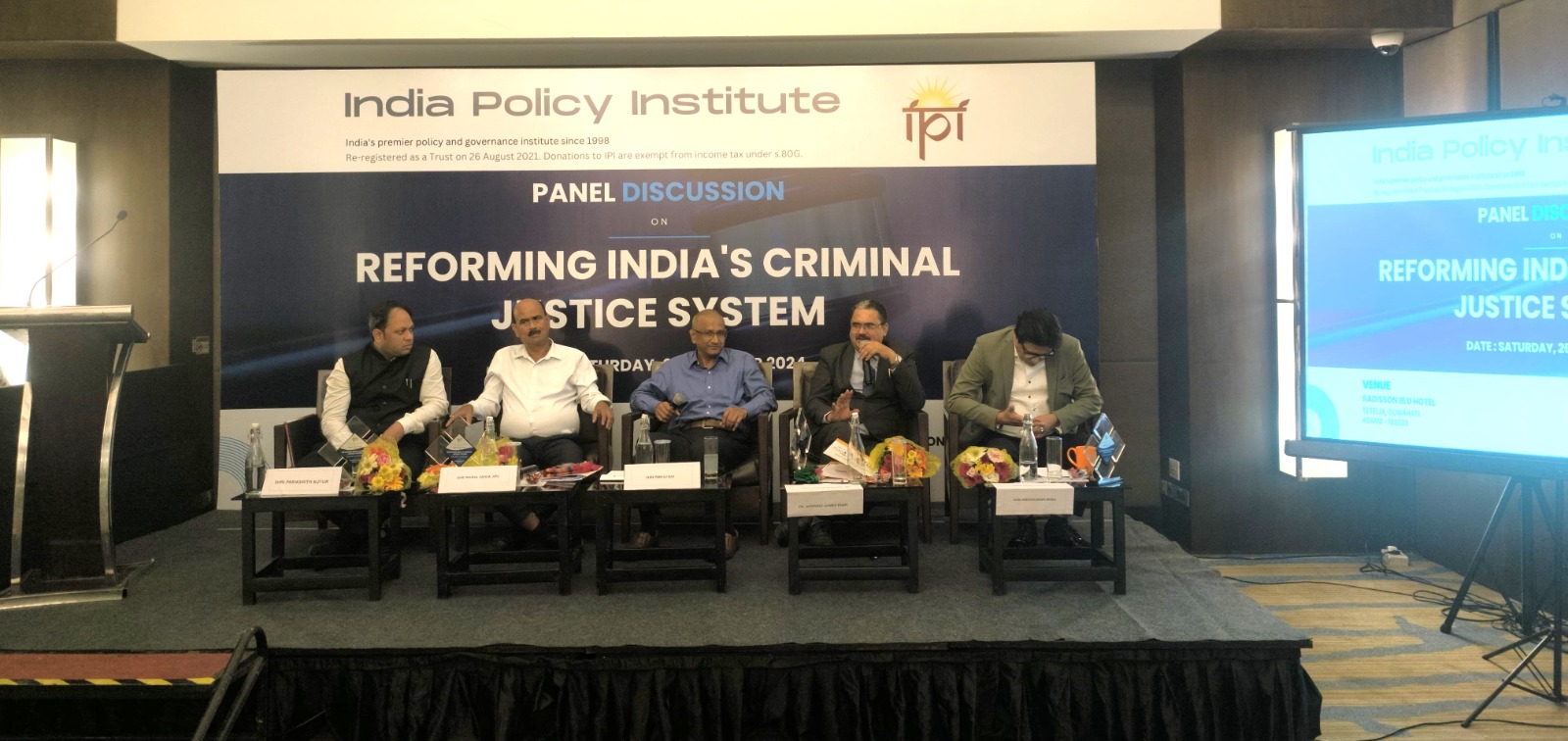Guwahati, October 28, 2024: The India Policy Institute (IPI) successfully concluded a significant panel discussion on “Reforming India’s Criminal Justice System” at the Radisson Blu Hotel, Guwahati. This significant event convened top legal experts, academics, and former law enforcement officials to discuss systemic challenges in India’s criminal justice system and explore pathways for meaningful reform.
Moderated by Shri Pankaj Das, President of the India Policy Institute, the discussion covered pressing issues, including the need for greater autonomy in police investigations, improved protections against custodial torture, and reducing political interference. The forum underscored the importance of societal and institutional change to foster transparency, efficiency, and accountability within India’s criminal justice landscape.
Reflecting on the purpose of the institute’s efforts, Shri Pankaj Das noted, “The India Policy Institute bridges academics and practitioners with the grassroots, striving to bring real, research-backed solutions to complex issues. The demand for policy change must come from the grassroots to influence legislators and the executive. By fostering informed discourse, we aim to create an environment where people understand the true demands for good policy.”
Dr. Sarfaraz Ahmed Khan, another panellist and an Associate Professor at the National University of Juridical Sciences, Kolkata, emphasized the urgency of reform, especially following the introduction of three new laws in July. “Despite these new laws, there remains a significant gap that demands reformation. While some improvements have emerged, much remains to be addressed. We hope that this institute will engage politicians and other stakeholders to drive continual improvement in India’s criminal justice system,” he stated.
Adding his perspective, Shri Parikshith Kutur, Advocate at the High Court for the State of Telangana and one of the panellists today, highlighted the essential role of societal reform in strengthening the criminal justice system. He observed, “The most important aspect of reforming criminal judicial systems is reform within society itself. Unless we reform ourselves, the system does not reform by itself. When society stops viewing beneficiaries of crime as heroes, the justice system will naturally become stronger.”
Esteemed panellists included Shri Angshuman Bora, Senior Advocate at the Gauhati High Court, and Shri Mukul Saikia, APS (Retd.), former Superintendent of Police, Assam, each providing insightful perspectives on the need for a more transparent and robust criminal justice framework.
The event underscored the urgency of criminal justice reform in ensuring justice, safeguarding human rights, and rebuilding public trust in the legal system. The India Policy Institute remains dedicated to advancing dialogues that contribute to meaningful change and support a just society.


